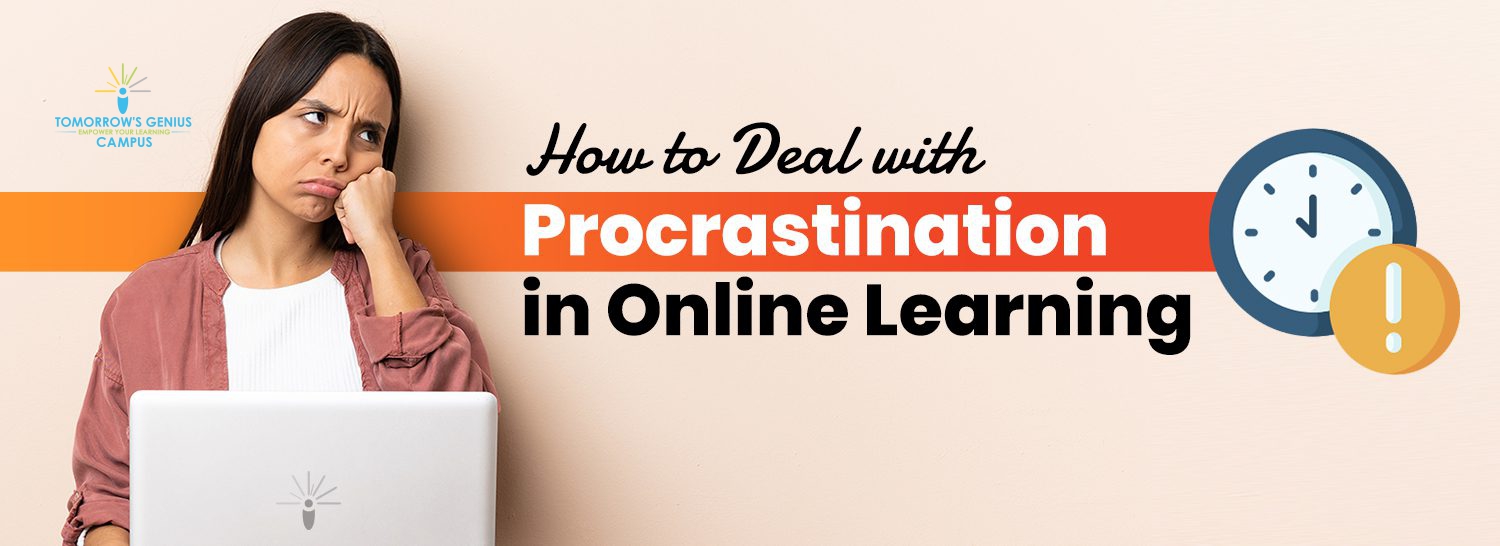How to Deal with Procrastination in Online Learning
Very often, learners direct the pace of online courses. Students can pick and choose how and when to study. In self-directed learning situations, they can go as quickly or as slowly as they’d like. Unfortunately, this often leads to putting tasks off until the last possible moment. Procrastination can lead to students performing poorly in online courses. Ideally, learners must deal with this issue by themselves. But, educators can do a few things to address procrastination in online learning. Let’s take a look at how online teachers can deal with such situations.
Addressing Procrastination in Online Learning
1. Include a Class on Procrastination
Students do not always realise it when they procrastinate. They assume they are prioritising tasks or tell themselves they work best under pressure. Educators must bring the issue to the forefront. They can do this by including a class on procrastination and online learning etiquette in their course. During the session, teachers can walk students through mindfulness activities. These activities will help them focus on the assigned tasks. By talking about procrastination, educators make learners aware of harmful behaviour patterns. Once a student identifies procrastination, they can take measures to correct it.
2. Work with Shorter Timelines
 Online educators must assign projects with very short timelines. If something is due within a few days, rather than in a few weeks, students will have less time to put it off. Instead, they will start work almost immediately, cutting down the risk of procrastinating. So, give your students short assignments regularly. Not only will it make the tasks less overwhelming, but it will also encourage students to keep up with their classes.
Online educators must assign projects with very short timelines. If something is due within a few days, rather than in a few weeks, students will have less time to put it off. Instead, they will start work almost immediately, cutting down the risk of procrastinating. So, give your students short assignments regularly. Not only will it make the tasks less overwhelming, but it will also encourage students to keep up with their classes.
3. Promote Project Work
Students are far more likely to procrastinate if they consider the work dull or boring. So, instead of long essays, ask your learners to work on projects. Project work encourages students to create things offline, which is crucial for online learners. Projects also allow students to be creative and use their imagination. Students perceive projects as fun. So, they might not procrastinate as much.
4. Group Students Up
 Procrastination is more of an issue when students work alone. So, educators should try their best to design activities that require group work. Once a teacher divides learners into pairs or groups, they should also define each person’s roles and responsibilities. By doing this, educators ensure that each student is held accountable for their task. Learners will be far less likely to procrastinate while working with others since they would not like to disappoint their peers.
Procrastination is more of an issue when students work alone. So, educators should try their best to design activities that require group work. Once a teacher divides learners into pairs or groups, they should also define each person’s roles and responsibilities. By doing this, educators ensure that each student is held accountable for their task. Learners will be far less likely to procrastinate while working with others since they would not like to disappoint their peers.
If you’d like to teach online, you can sign up on TG Campus. Our platform provides you with all the tools you require to create fascinating and immersive courses. You can even incorporate lessons about procrastination and online etiquette into your modules. We also have a robust testing mechanism that allows you to assign group projects with dedicated timelines. You can address and deal with procrastination in online learning with TG Campus.














